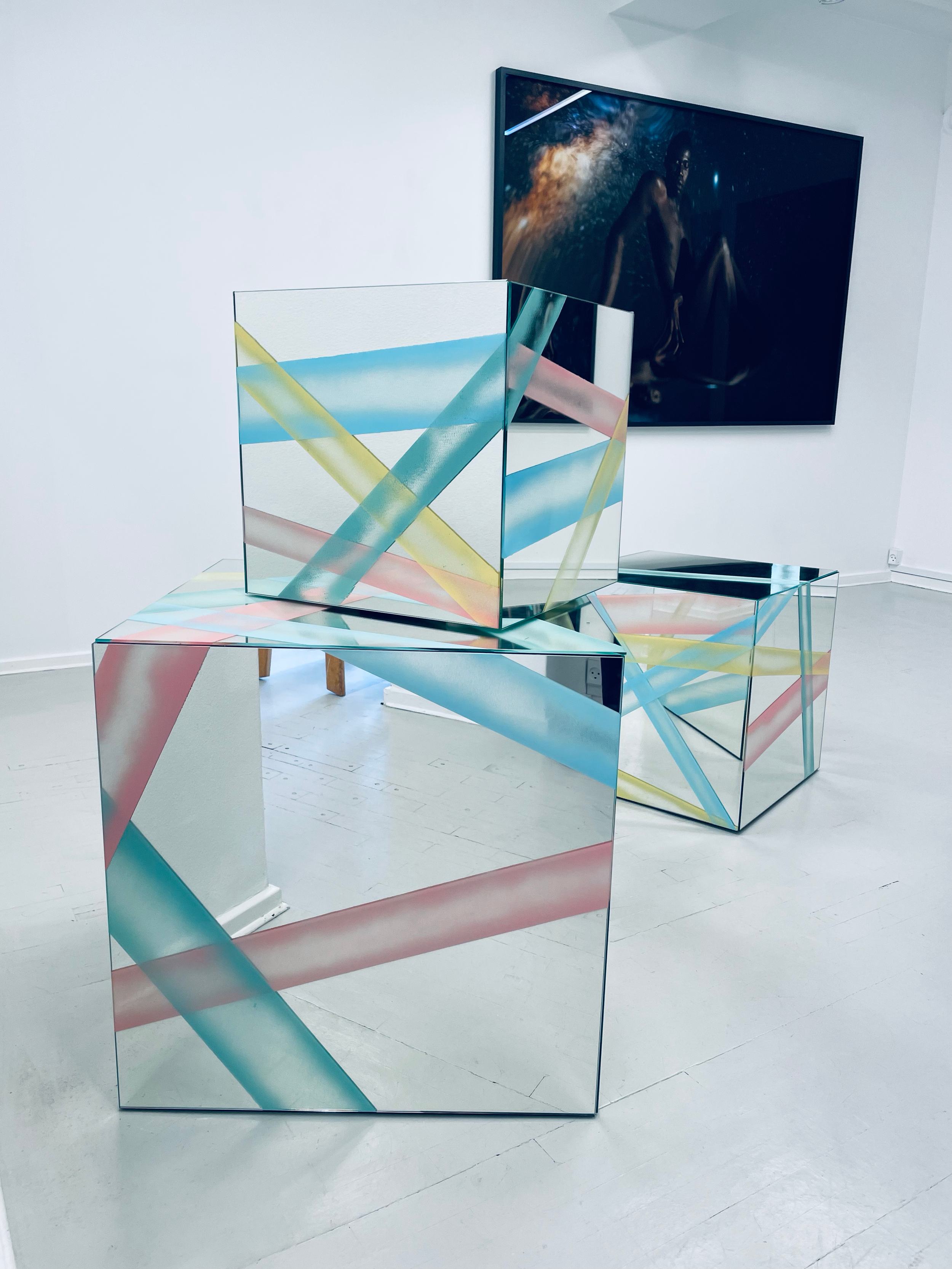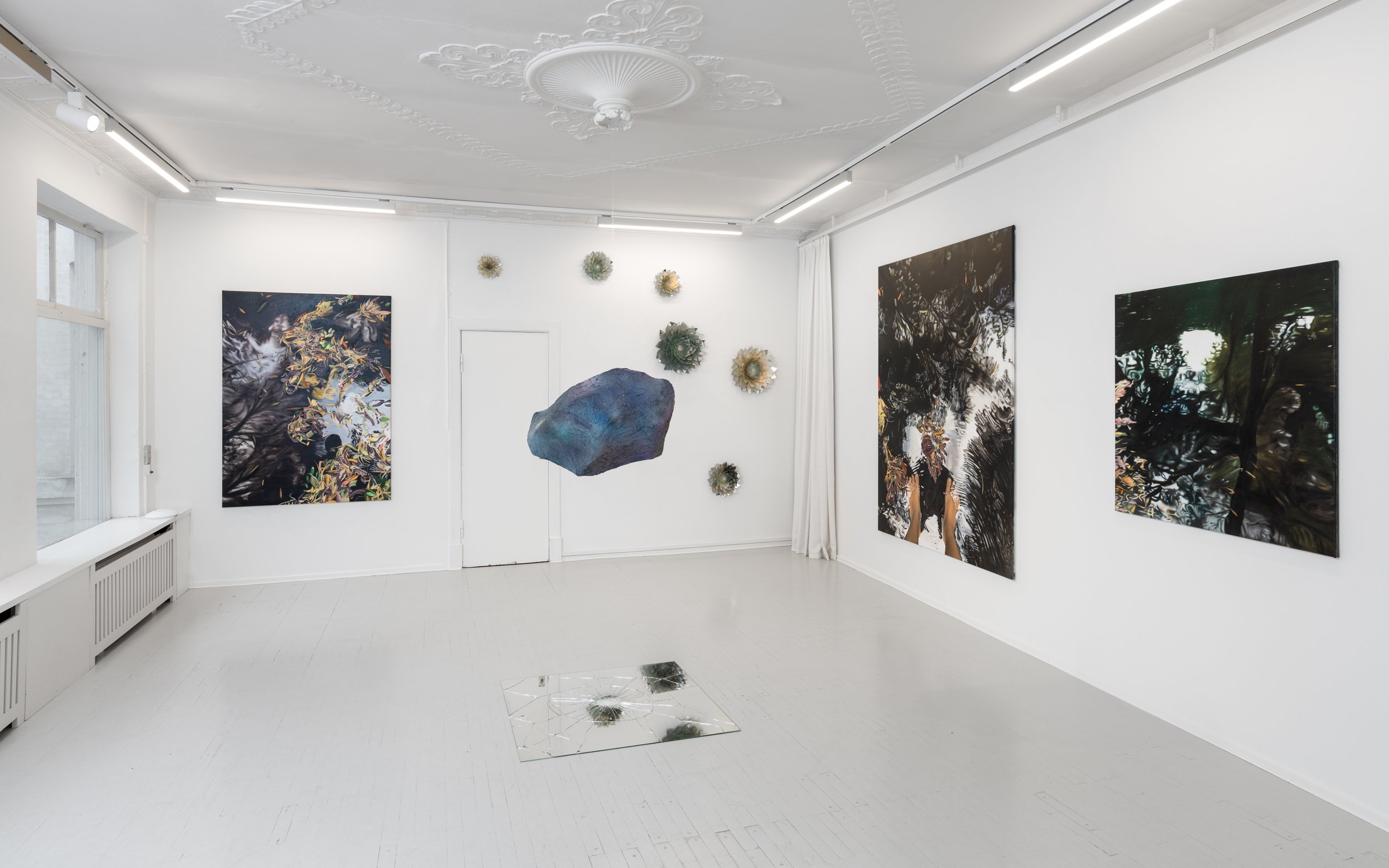Arden Asbæk Gallery is pleased to present the group exhibition Mirror Mirror, which explores the use of reflective surfaces
and the illusive effect of the mirror through the works of four visual artists. The mirror has always played a significant role
in art history and cultural theory with art historians discussing art’s role as either a window or mirror, as either a view into
someone else’s experience, or as a reflection of your own background.
In her newest series, visual artist Caroline H. Thon explores the boundaries between realism and abstraction, while also
continuing her work with the aftermath of what can be characterized as psychosomatic disruption and the following
healing process. The series deals with the potentials of change and our dependency on the world around us. By turning
the world upside-down, Thon’s highly detailed oil paintings depict the surroundings through reflections in a still pool of
water, creating an almost infinite view of the sky.
Sarah Schönbeck utilizes old and antique mirrors, creating depth and nuances on the shiny surfaces with sandpaper
and etchings, proving the versatility of the material. While the mirror is by some seen as deceptive due to its infinite
qualities, with a broken mirror deemed to give the culprit seven years bad luck and a distorted image representing
corruption of the soul, Schönbeck’s work rejects all superstition. Instead, her work revolves around concepts such as
space and expansion, and here, the broken mirror, like an exploding star or blossoming flower, opens itself up to the
viewer, who is then reflected in the work itself.
By using different kinds of mirrors and reflective materials, photographer Henriette Sabroe Ebbesen blurs the lines
between photography and painting, creating a symbolic boundary between reality and imagination. Her newest series
of work is inspired by the prosperous Polycrates, who tried to escape his fate by throwing his jewel-encrusted ring into
the sea, only for it to later return. The mutability of fate, or bending of world order, reflects in the mirror’s mystical
side. Through various cultural readings, across the globe and across ages, mirrors have consistently been considered a
gateway to the afterlife, and according to the theory of relativity you can bend space and time, which Ebbesen illustrates
by literally bending rays of light with mirrors.
Some of the recurring themes in visual artist Anne Nowak’s oeuvre are impermanence and eternity, life and death, dark-
ness and light, Sun and Moon as well as other inherent polarities of our existence and the cycle of life. Adopting the
visual language of astronomy as well as an almost modernist form, inspired by artists such as Hilma Klint and Emma
Kunz. Nowak’s works draws upon the mirror through several playful objects and portal-like formations, such as the
artist’s alluring, multi-dimensional Mirages and floating meteor rock, forming alternate universes right before our eyes.







